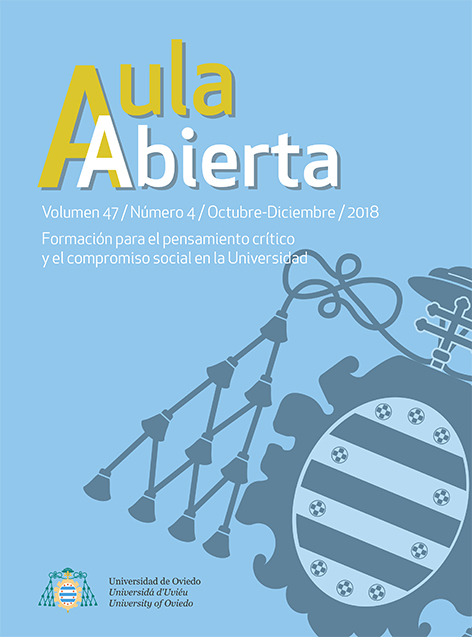Resumen
ABSTRACT
In this article I introduce and develop neoliberalism through a discussion of Marxism and the way that classed mystification and feasibility are crucial concepts for understanding the maintenance of neoliberalism, and revolutionary possibilities. The starting point for this article is an essential explication of the Marxism, which is argued as the most efficacious theoretical framework for understanding the current historical conjuncture. Then, I provide an understanding of the development of capitalism into its current neoliberal form and its core features. Doing this work is important because while scholars regularly refer to capitalism/neoliberalism, they rarely explicate its fundamentals. Having this specification will provide a referent for the analysis for the discussion in the article. This incorporates the question: what mechanisms generate the tendency for most people to acquiesce (or even assent) to neoliberalism, despite the inequality and inequality it creates? To address this, I suggest the critical importance of mystification. While exposing neoliberalism is important I argue that analysis and critique alone is not sufficient. I draw the article to a close by presenting a discussion about the importance of the feasibility of an alternative to neoliberalism to be promoted by critical educators and Marxists. The possibility of resistance and revolution emerges through constructing, what Gramsci called, a new conception of the world.
Keywords: Neoliberalism, Marxism, Marx, Social Class, Revolution.
RESUMEN
En este artículo, presento y desarrollo el neoliberalismo a través de una discusión sobre el marxismo y la forma en que la mistificación y la factibilidad clasificadas son conceptos cruciales para comprender el mantenimiento del neoliberalismo y también las posibilidades revolucionarias. El punto de partida de este artículo es una explicación esencial del marxismo, que se argumenta como el marco teórico más eficaz para comprender la coyuntura histórica actual. A continuación, proporciono una comprensión del desarrollo del capitalismo en su forma neoliberal actual y sus características principales. Hacer este trabajo es importante porque a menudo, cuando los académicos se refieren al capitalismo / neoliberalismo, rara vez explican sus fundamentos. Tener esta especificación proporcionará una referencia para el análisis de la discusión en el artículo. Esto incorpora la pregunta: ¿qué mecanismos generan la tendencia de la mayoría de las personas a aceptar el neoliberalismo a pesar de la desigualdad que crea? Para abordar esto, sugiero dotar de mayor importancia la crítica de la mistificación. A este respecto considero que si bien la exposición al neoliberalismo es importante, sostengo que el análisis y la crítica por sí solos no son suficientes. Concluyo el artículo presentando una discusión sobre la importancia de la viabilidad de una alternativa al neoliberalismo para ser promovida por educadores críticos y marxistas. La posibilidad de resistencia y revolución emerge a través de la construcción, lo que Gramsci llamó, una nueva concepción del mundo.
Palabras Clave: Neoliberalismo, Marxismo, Marx, Clase Social, Revolución.
Citas
Barnes, T. (2017). Migrant’s son swaps the East End for Eton after
winning scholarship. The London Evening Standard. Thursday 2 March 2017. Available from: http://www.standard.co.uk/
news/education/migrants-son-swaps-the-east-end-for-etonafter-
winning-scholarship-a3479781.html
BBC (1999). ‘UK Thatcher stands by Pinochet’, BBC News, March
http://news.bbc.co.uk/1/hi/304516.stm
Brand, R. (2014). Revolution. London: Random House
Choonara, E. & Robinson, S. (2008). Hunger in a World of Plenty.
Socialist Workers Party.
Clark, T. G. (2012). ‘What is Neoliberalism? http://anotherangryvoice.
blogspot.co.uk/2012/09/what-is-neoliberalism-explained.
html
Forbes (2011). The Four Companies That Control the 147 Companies
That Own Everything.
Forgacs, D. (2000). The Gramsci Reader: Selected Writings 1916-
New York, New York: University Press.
GATS (1994). https://www.wto.org/english/docs_e/legal_e/26-
gats.pdf
Gramsci, A. (1971). Selections from the Prison Notebooks of Antonio
Gramsci, London: Lawrence and Wishart.
Lawton, L. (2012). ‘Liam’s Labrynth’ https://liamos85.wordpress.
com/2012/07/12/a-critical-assessment-of-the-impact-of-neoliberalism-
on-the-chilean-state-during-the-pinochet-regime-
-1989/
Maisuria, A. (2017). Mystification of production and feasibility of
alternatives Social class inequality and education. In Cole, M.
(2017) Education, Equality and Human Rights [4th Ed]. London:
Routledge
Maisuria, A. & Cole, M. (2017). The Neoliberalisation of Higher
Education in England: An Alternatives is Possible. Policy Futures
in Education. Vol 15 (3) pp.602-619
Maisuria, A. (2014). The Neoliberalisation Policy Agenda and its
Consequences in England: A Focus on Resistance Now and
Possibilities for the Future. Policy Futures in Education. 12(2)
pp 286-296
Marmol, E.; Hill, D.; Maisuria, A.; Nocella, A.; & Parenti, M.
(2015). The Corporate University: An E-interview. Critical
Education. The Institute for Critical Education Studies. http://
ices.library.ubc.ca/index.php/criticaled/article/view/185102
Martinez, E. & García, A. (2000). ‘What is Neoliberalism? A
Brief Definition for Activists’ National Network for Immigrant
and Refugee Rights http://www.corpwatch.org/article.
php?id=376
Marx, K. (1867). Capital Volume One: [Online]. Marxist Internet
Archive. Available: https://www.marxists.org/archive/marx/
works/1867-c1/ch13.htm
Marx, K. (1859). Preface of A Contribution to the Critique of Political
Economy Online]. Marxist Internet. Archive. Available:
https://www.marxists.org/archive/marx/works/1859/critique-
pol-economy/preface-abs.htm
Marx, K. & Engels, F. (1848). Manifesto of the Communist Party
[Online]. Marxist Internet Archive. http://www.marxists.
org/archive/marx/works/1848/communist-manifesto/index.
htm
Marx, K. (1847). Poverty of Philosophy [Online]. Marxist Internet
Archive. Available: https://www.marxists.org/archive/
marx/works/1847/poverty-philosophy/
Mayo, P. (2015). Hegemony and Education Under Neoliberalism: Insights
from Gramsci. London: Routledge.
Rikowski, G. (2001). After the Manuscript Broke Off: Thoughts
on Marx, Social Class and Education. British Sociological Association
Education Study Group Meeting. King’s College London.
Thomas, P. D. (2009). The Gramscian Moment: Philosophy, Hegemony
and Marxism. Leiden; Boston: Brill.
Vitali S., Glattfelder J.B. & Battiston S. (2011). The Network of
Global Corporate Control. PLoS ONE 6 (10)

